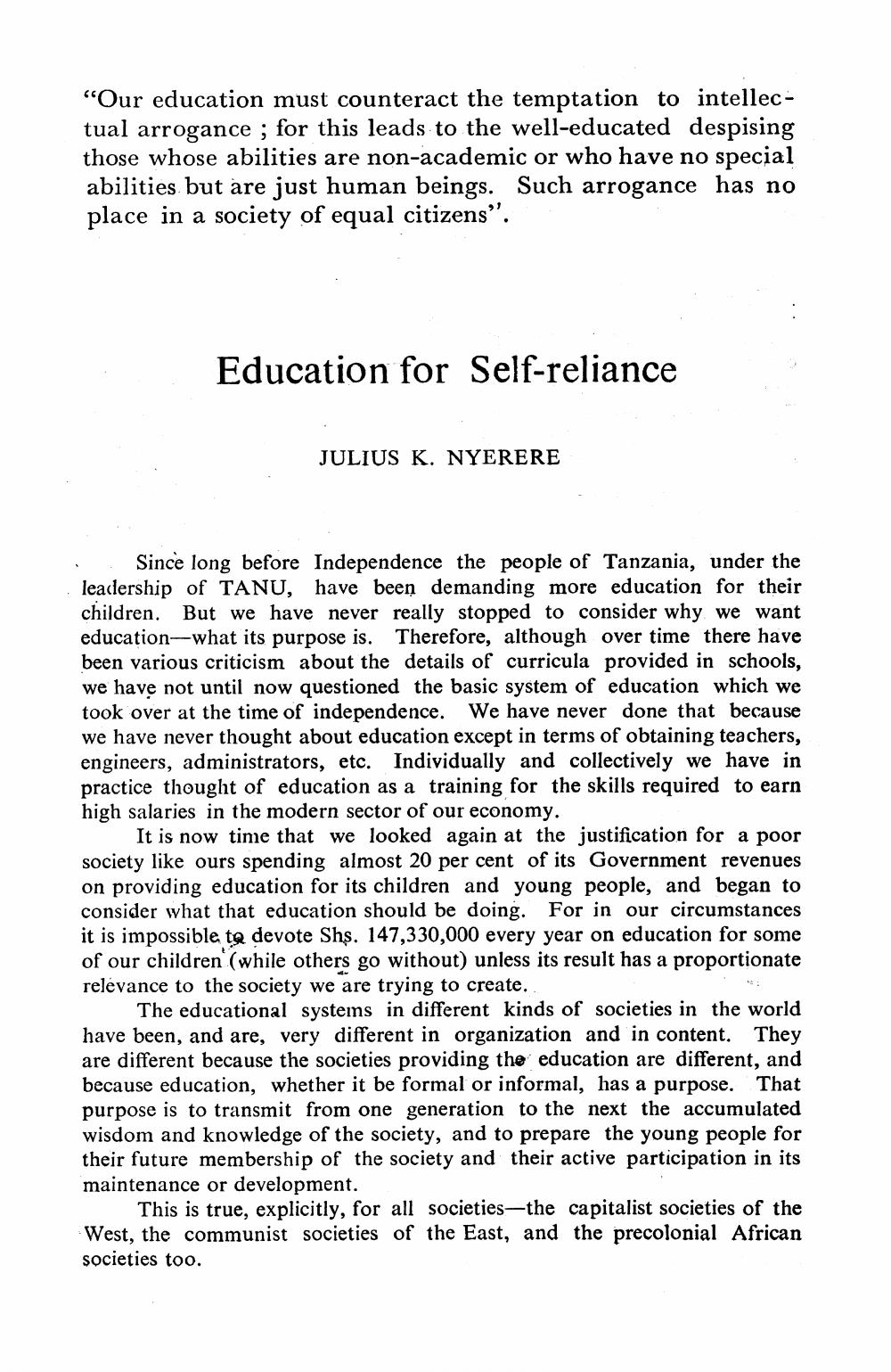Book Title: Education For Self Reliance Author(s): Julius K Nyerere Publisher: Julius K Nyerere View full book textPage 1
________________ “Our education must counteract the temptation to intellectual arrogance ; for this leads to the well-educated despising those whose abilities are non-academic or who have no special abilities but are just human beings. Such arrogance has no place in a society of equal citizens”. Education for Self-reliance JULIUS K. NYERERE ught about ed Individually for the skills Since long before Independence the people of Tanzania, under the leadership of TANU, have been demanding more education for their children. But we have never really stopped to consider why we want education--what its purpose is. Therefore, although over time there have been various criticism about the details of curricula provided in schools, we have not until now questioned the basic system of education which we took over at the time of independence. We have never done that because we have never thought about education except in terms of obtaining teachers, engineers, administrators, etc. Individually and collectively we have in practice thought of education as a training for the skills required to earn high salaries in the modern sector of our economy. It is now time that we looked again at the justification for a poor society like ours spending almost 20 per cent of its Government revenues on providing education for its children and young people, and began to consider what that education should be doing. For in our circumstances it is impossible to devote Shs. 147,330,000 every year on education for some of our children (while others go without) unless its result has a proportionate relevance to the society we are trying to create.. The educational systems in different kinds of societies in the world have been, and are, very different in organization and in content. They are different because the societies providing the education are different, and because education, whether it be formal or informal, has a purpose. That purpose is to transmit from one generation to the next the accumulated wisdom and knowledge of the society, and to prepare the young people for their future membership of the society and their active participation in its maintenance or development. This is true, explicitly, for all societies—the capitalist societies of the West, the communist societies of the East, and the precolonial African societies too.Page Navigation
1 2 3 4 5 6 7 8 9 10 11 12 ... 18
